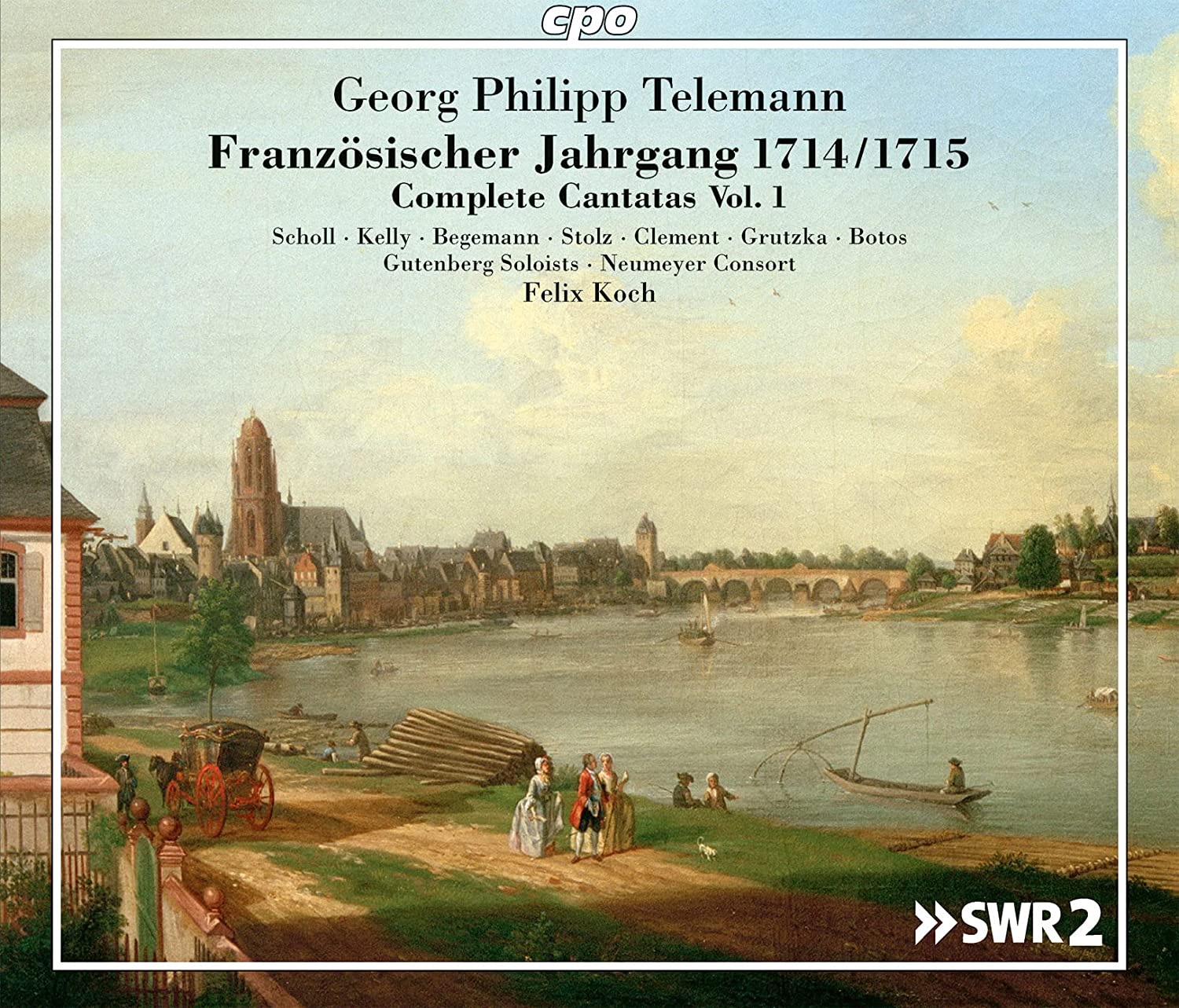Elisabeth Scholl, Julia Grutzka, Larissa Botos, Rebekka Stolz, Fabian Kelly, Julian Clement, Hans Christoph Begemann SSAATBB (only the tenor is common to both discs), Gutenberg Soloists, Neumeyer Consort, Felix Koch
133:43 (2 CDs in a box)
cpo 555 436-2
Click HERE to buy this on amazon.co.uk
[Doing so helps keep this website FREE TO VIEW. These sponsored links are our only source of income!]
From the long-held, slumbering details of illuminating musicology, along with the impetus of Canberra Baroque’s editions, we find a most noble project underway; to record the first ever full cycle of cantatas from a composer known to have written about 20 or so. Some may have had knowledge of just a few “glinting stars” from this major constellation, but gradually we shall be able to experience the whole year’s worth of 72 works. Here alone we have about nine premieres! It opens with the resplendent Jesu meine Freude TVWV1:966 with an eight-part choir (the rest more modest!), sporting some very finely crafted arias – the soprano one has four recorders, while the final bass one mirroring the words with a bell-effect motif in Schlage bald… This is an excellent opening to these versatile and delightfully prismatic cantatas upon which a spotlight is finally being held!
These ten works (mostly from the Lenten period) offer special glimpses into the musical application of a master fusionist, and melodic interpreter. As the cycle’s modern nickname implies, elements of French music have been cleverly imported and interwoven. TVWV1:32 Ach sollte doch die ganze Welt opens with a fine fleeting Overture! There are rondeau-forms and other movements with Gallic flavour and modes. Mostly scored for four vocalists, with another four ripienists and strings, Telemann also applies modest sprinkling of extra woodwinds, such as in the third aria of TVWV1:678 with no fewer than three bassoons! The Palm Sunday piece (TVWV1:1585, with two oboes) is a most welcome premiere, though some of our readers might recognise the opening and one of the chorales, which Bach lifted for his (pasticcio) Passion Oratorio with a backbone of mostly C. H. Graun’s music, on a previous CPO CD.
This cycle – written a few years after moving from Eisenach to Frankfurt – displays a dazzling array of musical invention and inspiration guided by the famous theologian poet Erdmann Neumeister’s texts. Judging by how many times he undertook the task of setting cycles by this poet with great diligence, this proved a most fruitful collaboration for Telemann .
Right from the start, you feel Felix Koch has mustered an extremely fine team to do justice to these neglected gems of spiritual music with often special twists redolent of France. The Neumeyer Consort is responsive and vibrant with a crisp, alert sound. The Gutenberg Soloists provide really balanced, radiant support to the main soloists! Elizabeth Scholl (who has already shown her mettle as Agrippina in Telemann’s opera, Germanicus), comes to the fore and often gives a striking performance above her peers… with just the occasional tonal sharpness delivered in all earnestness!
All in all, there is an astounding display of a masterful and engaged musical mind at work within these spiritual cantatas. Felix Koch et al are about to place this full “constellation” into the heavens, and it will shine with some intensity, gradually informing all of the inexhaustible musical abilities of one of the baroque’s finest. The 67-page booklet will equally inform all about this most noble and worthy undertaking. Roll on Easter!
David Bellinger
